Hey kids! It’s Elizabeth (formerly the artist known as Kitty, and briefly called the symbol § while trying to project some mystique). Remember this whole blog thing? I sure as hell didn’t for ten months. But we’re trying to get this up and rolling again, so here goes. It’s been adventuresome, with many anecdotes and items of interest and a glorious incident in which the cat ate an entire package of chicken-flavored antibiotics and much to her embarrassment had to go to feline detox. Also:

Chapter One
In which we depart from La Spezia and the Ligurian coast, and for a couple of days anchor off Saint-Tropez, a pretty French village of little stone lanes, boutiques, overpriced shoes, Provencal quaintness, and afternoon bocce ball in the earthen square. Besides being a famed destination for the jet set (Brigitte Bardot got all sexy-like on its beach, and ancient Romans with fat bank accounts kept their villas here), the town was also the site of what may have been the first contact between the French and Japanese, when in 1614 samurai and diplomat Hasekura Tsunenaga led a European expedition towards Rome and sheltered in its port (I read that the French were impressed by the superiority of Japanese swords and the fact that their guests did not reuse handkerchiefs after blowing their noses, because Europeans were way behind in the field of hygiene). Saint-Tropez (aka Delta Beach) was also the first town upon the French Riviera to be liberated by the Allies during WWII, in the Operation Dragoon landing (suck it, Nazis). There actually was a Saint Tropez, too! Or rather Saint Torpes; after his martyrdom in Pisa, his headless body was placed in a boat along with a rooster and a dog, a highly crummy carnival of a cruise which eventually landed here. The animals bounced and the locals decided the dead dude’s name was a totally metal choice.
Chapter Two
In which we spend a night in Marseilles and forget what we did there but probably watched Brooklyn Nine Nine, and cross the Gulf of Lyon to take shelter in the French town of Sète, which has been called the Venice of the region for the canal which serves as its major concourse. Rising from sea to hilltop, its waterway and waterfront strewn with the blue boats of the fishermen, the town is mad picturesque. However, it rained torrentially, so we consumed a good deal of cake and watched more TV.
Chapter Three
In which we elect to sail straight to our goal of the island of Mallorca, a trip which ought to have taken 40 hours. Thanks to an error on the part of someone (ahem, Davi), we ran out of fuel, a sail crapped out, the wind died, and a storm 20 miles to the east gave us a continual barrage of choppy 3 meter waves from the side. Thus the voyage lasted for 66 hours (add one more 6 and you know what I’m talking about), including much rocking, rolling, flying tea kettles, and a smidgen of vomiting. The cats generally pouted and napped, not much of a deviation from the usual. In the parlance of mariners, it was hellacious. But not be daunted, Cristina did prepare the highly necessary bloody marys, and the passage concluded with the sight of a waterspout against the clearing skies, which called to mind all the sheer power of the spinning systems of the earth and the forces humans have not made, and was freaking awesome.
Chapter Four
In which we spend a couple of months in Palma, Mallorca’s capital, enjoying its excellent cuisine, music, architecture (between barrio alleyways and a nineteenth-century downtown and castle and modernity, it’s got the structures of a dozen cities at once), and the enormous cathedral with its reflection shimmering contrary upon the waters. I visited my fam for Thanksgiving, Davi visited hers for Christmas, and Cristina and I commemorated the Nativity by having cocktails with our wonderful friend who ran into a door. So from my desultory readings I learned that Palma and the island came under the possession of the Roman Empire, the Byzantines, the judicious rule of the Umayyad caliphate, a bunch of disorganized and antisemitic French people, and Spain, as it is today. However, for about a thousand years the city’s economy depended almost entirely upon piracy, which is so cool.
Chapter Five
In which a two month sojourn for boat repairs in the town of Porto Cristo upon Mallorca’s eastern coast turns into five months of wondering why the engine is making that noise, where that smoke is coming from, and why do we get an electric shock when we touch the railing. But Porto Cristo is a lovely little place where limestone cliffs curve into a little cape where sailboats hide, with children (and in our case, cats) play upon the beach before venues closed for the season (really, the main games in town were Burger King and a high recommended plaza café called Es Tanit). We made beautiful new friends, enjoyed the company of fond old ones, and explored an old bunker from the Spanish Civil War. Davi’s father visited us there as well, which was a blast and a half. And we visited the island’s northernmost point of Cap de Formentor. Culminating in a lighthouse from which one can see the hazy landfall of the other Balearic Islands and the strange meeting of sea and sky, the peninsula of Formentor is also occupied by a splendid amount of friendly goats.
Chapter Six
In which we make a blessedly uneventful crossing from Mallorca to Sardinia, where we enjoy the city of Cagliari and its layers of metropolitan and medieval life rising upon a steep hill over the sea (that music tho: shoutout to Zulu bar and ace guitarist Matteo Leone). We spent time with some excellent friends and Cristina got new ink (shoutout to Enrico and Sara at Electric Storm Tattoo), and a server spilled Prosecco upon my laptop and I wept quietly in the corner of the café. It’s all good though, obviously, because otherwise you wouldn’t be reading this.
Chapter Seven
In which we make another crossing to Palermo, the capital of Sicily, arriving just in time for Easter. The holiday was conducted in a delightfully Palmeritani way: after an extremely violent and vaguely traumatic passion play, the procession of the clergy began, carrying the effigy of Christ’s body in a glass coffin. However, a fight broke out between two bearers of the effigy, the fistfights started, and the crowd of spectators erupted into shouting and punching factions. I feel that this should become and possibly is a tradition applied to every holiday.
Chapter Eight
In which we find ourselves unable to leave Palermo due to engine issues (SURPRISE), and are entirely cool with that, because it’s a fabulous city of the gritty and the Baroque, garbage and angels, ghosts and mafia (who are jerks and don’t resemble Brando in any fashion), catacombs of corpses mummified and repeated fistfights. My Mommy visited! which was unspeakably wonderful, and we made forays to the seaside town of Cefalu, where the Saraceni fortress still watches over the slender streets and sunlight renders the pale stone golden, icons peering from the silk-flower shrines. We also hit up the Aeolian island of Vulcano, *surprise* a dormant volcano: according to Greek and Roman mythology, it was a forge belonging to respectively to Hephaestus and Vulcan, the god of metallurgy, blacksmiths, and fire. The mountain still smokes and fumes with mystery over its little port, where the extremophilic microorganism Pyrococcus furiosis was first discovered in a fumarole and given its badass name. Also Mom and I almost got kicked out of a UNESCO World Heritage Site, and in order to visit the Arab-Norman palace we had to bury my knives in the Royal Gardens of Palermo.
I’m going to break from my typical asshat tone here, however. While we’ve been distracted by plenty of fun and fascinating things, and there will be more posts and pictures to tell them, our journey was also broken by sorrow. My grandmother passed away in March, and Davi’s mother passed away in late April. We traveled to Hungary to commemorate her and to be near Davi’s father and all our family, to be together in mourning and remembrance of so beautiful a woman and devoted a parent she was. As is the case in all grief, I can’t find the proper words to express the pain of these losses, nor can I express the extraordinary nature of who we have lost, the artistry and laughter and tenderness. Grief comes in waves, and this is something with which Davi and all of us live in agony and in love. Representing this love, this pain, and the person we have lost is something words cannot wholly achieve. We miss, we remember, and we love boundlessly. So I can only conclude with a reminder of the miracle that love in all its forms is, the unbreakable bridge it makes between all of us, all those who live and all those who are gone.
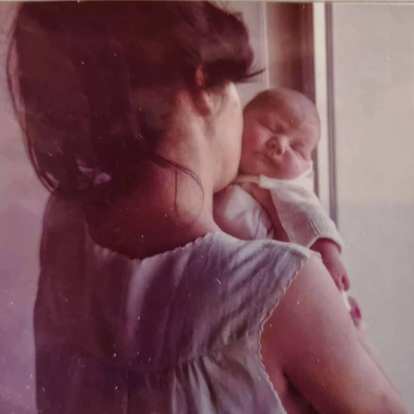


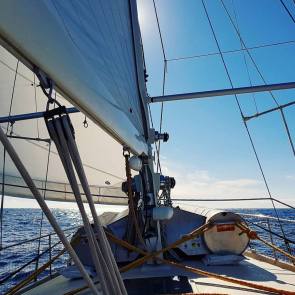



















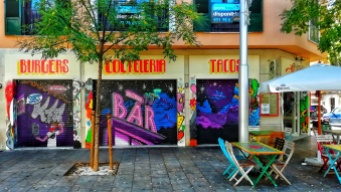





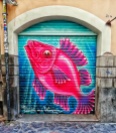

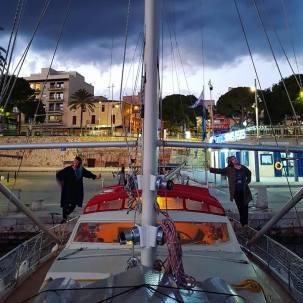










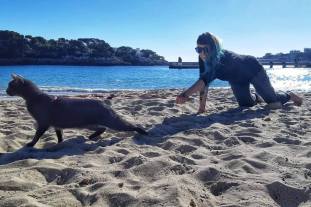


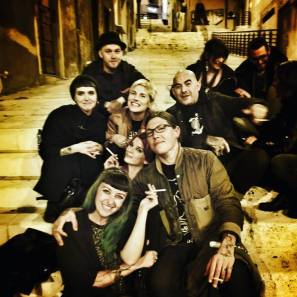







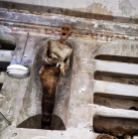







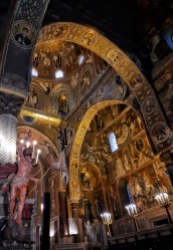



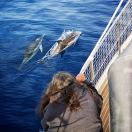


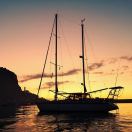
Love your blog. Sailed to many of the places mention and it brings great memories
LikeLike
Hey, thank you very much! Still sailing? Perhaps we’ll see you somewhere in the world…!
LikeLike
I’m sorry to hear about the passing of your family members. We enjoy reading your blog. Keep it coming.
LikeLike
Thank you very much for your sympathy. It means a lot, and we’ll keep on wandering, glad to have readers kind as you
LikeLike
Lovely writing B, I love living vicariously through your travels, miss you.
Deep sympathies for the loss of mother and grandmother.
LikeLiked by 1 person
I miss you too ❤
LikeLike